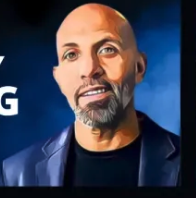This is the question that motivated us to write The Story of French in the first place. With the mind-blowing spread of English across the planet, a lot of people assume French is being wiped out. Is it? Do these numbers surprise you?
Growth in number of native speakers
When we began researching The Story of French, there were 175 million French speakers in the world. The number had tripled in the last 50 years. Sounds impressive, but all that means is that French speakers increased at the same pace as the world population increased.
But French is still growing along with the world population. The Organization internationale de la francophonie recently increased their official number of French speakers to 200 million. That puts French in 8th position in the ranking of world languages.
Status as an international language
Although French has roughly the same number of speakers as Portuguese, French remains, indisputably, the world’s second international language (after English). That’s became it is second only to English for number of countries where it is an official language (33, compared to 45 for English), for number of people who study it (100 million), for number of countries where it’s taught (every country in the world), for number of teachers (2 million) and because it is still used widely in international institutions and in business.
There is lots of evidence that French is slipping as an international language. For example, the European Union is using English more and more. But French has a long way to slip before it becomes irrelevant, if it ever really does.
Comparison with other world languages
Of course, when you look at the increase in use of English across the planet and the growing influence of Chinese, it’s easy to jump to the conclusion that French will lose out and gradually disappear. And a lot of people are jumping to that conclusion.
All I can say is that it’s hard for anyone to predict.
We took a close look at the picture in Senegal, a former French colony considered the cultural capital of West Africa. At the time, George W. Bush was sort of courting Senegalese president Wade to try to boost US influence in a part of the world where it doesn’t have much clout. The obvious way to do that is to push English. But most people we talked to thought the plan was pretty futile. As one university professor explained, since French is the language of Senegal’s education system, Senegalese can only learn English if they already speak French.
As I learned at a recent language conference, the number of native English speakers is increasing only as fast as the number of native French speakers – and that’s not too fast. The real powerhouse languages today are Chinese and Arabic.










